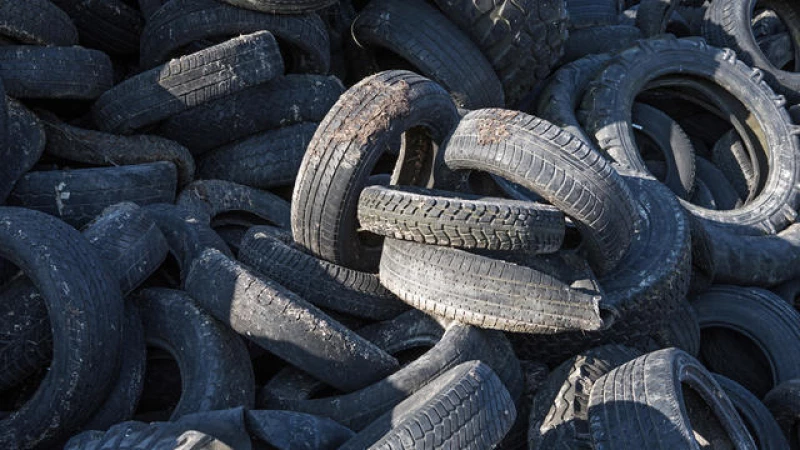Electric Vehicles: Start-up Turns Used Tires into Batteries
As demand for electric vehicles continues to grow, one start-up company is looking to make the cars even more sustainable – by turning used tires into batteries.
Most electric vehicles rely on lithium-ion batteries for their power. But critics say that those batteries are far from being as efficient, environmentally friendly and sustainable as they could be. That's where one Chile-based company says old tires come into play.
The company, called T-Phite is putting used car tires through a process called pyrolysis, which entails putting the tires under extreme heat so that they break down into smaller molecules. T-Phite CEO Bernardita Diaz says those molecules become three primary byproducts – pyrolytic oil, steel and carbon black, a substance that contains graphite material essential to providing an electric pathway within batteries for energy to surge.
According to black carbon supplier Imerys, which is not involved with this project, carbon black is usually produced "by the incomplete combustion of heavy petroleum products such as FCC tar, coal tar, ethylene cracking tar, and a small amount of vegetable oil."
Along with having "excellent electrical conductivity," Imerys says that the substance is also known for being wear-resistant.
According to Diaz, creating this substance from used tires addresses two issues. "One is the proper disposal of tires and the second is the growing demand for materials in electromobility," she said. "And when you obtain materials from other waste, you are contributing to what is known as the circular economy."
In the United States alone, approximately 250 million tires are discarded each year, as reported by the Federal Highway Administration. Of these tires, less than half are either recycled into new products or used for tire-derived fuel, the agency stated.
"Natural resources are already extremely limited and the fact that new solutions can be found from waste is highly important," Diaz added. She also mentioned that their process can expand beyond lithium-ion batteries and be applied to sodium batteries, which are considered the next generation of batteries in electromobility.
"It is very significant and rewarding for us that this innovation not only caters to a specific business niche, but also offers broader benefits," she said.
According to Diaz's company, potential investors have expressed considerable interest in the process and may be interested in assisting with its industrial-scale implementation. However, it is important to note that their process is the result of years of research into this potential solution.
In 2014, researchers from Oak Ridge National Laboratory in Tennessee made a groundbreaking discovery. They found that carbon can be extracted from tire rubber-derived materials and that this particular form of carbon outperforms other sources. This finding opened up new possibilities for the use of carbon in various applications.
Fast forward to 2021, and another group of scientists conducted further research on carbon black, a form of carbon derived from tire rubber. Their study, published in a reputable scientific journal, revealed that carbon black can systematically enhance battery performance, enabling faster charging capabilities.







